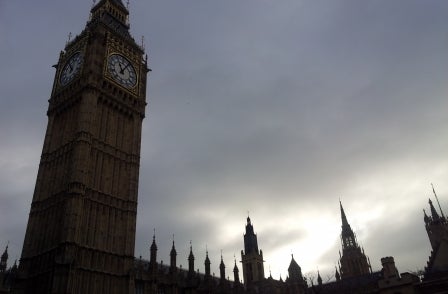
Journalists should challenge threats of a “new snoopers’ charter” contained in the Government’s draft Investigatory Powers Bill, drawn up in part to fight terrorism, because it gives the state “a blank cheque” to spy on citizens and threatens investigative journalism, an event in London heard.
Heather Brooke, the journalist who exposed the MPs' expenses scandal, and Shami Chakrabartii, director of Liberty, made the calls at a packed London Press Club/ Society of Editors debate Press Freedom in a Surveillance State at the Stationers’ Hall in London.
According to Chakrabarti, the Investigatory Powers Bill could “turn all of us into suspects” if passed into law. She called for “an appropriate balance between liberty and security. But since 9/11 to be somebody even calling for a more proportionate approach is to be a traitor”, she said, praising Edward Snowden for his revelations. “We wouldn’t be capable of having this debate but for his intervention.”
Challenged by moderator Roy Greenslade on the need for surveillance as protection from terrorism, she said while the police always had the power search homes and tap phones, “what we have found out in recent years is that we have now moved away, without public debate or knowledge or consent or with parliamentary involvement, let alone the involvement of the judiciary, to blanket surveillance, not of the targeted of those who have aroused suspicion, but something which would turn all of us into suspects”.
She implored journalists to oppose it: “If everyone is suspect and all communications are to be captured and retained, looked at or not, how do you protect journalists’ sources, how do you protect parliamentarians, how do you medical confidentiality or legal confidentiality. You can’t.”
Brooke, now a professor at City University, who sat on the Independent Surveillance Review Panel alongside former MI5 boss John Scarlett, warned against a “No privacy for us, no scrutiny of them” attitude.
She said: "It’s not that if you have nothing to fear, you have nothing to hide. But if you are doing certain types of journalism, by definition you are pissing off powerful people – people with money and power – and you might be considered subversive to the state.
"For example, the stuff that’s been exposed about the police (infiltrating pressure groups) you are challenging the police, they don’t like it so under their RIPA powers they have made life difficult for journalists. And that’s the problem.
"When you give to the state this gigantic storehouse of all of your internet and telecommunications data, the minute you come under their radar as a person of interest, they have a litmus test maybe not to arrest you, but maybe to blackmail you, to put pressure on you, to do things than may stop you doing certain stories and may curtail your investigation.”
Fellow panelist Martin Bentham, the Evening Standard’s home affairs editor, said: "There are valid arguments that you make, and Heather makes, about the need for proper safeguards and proper monitoring of powers which do exist but I do not accept we are going to be living in some sort of East German state with everybody under surveillance. I just don’t accept it will happen."
What had emerged post-Snowden, he said, was the extent of activities by the security services that even the regulators were unaware of, and in particular how journalists' sources could be compromised. “The question now is whether the new investigatory powers proposals will provide proper safeguards, and I am relatively optimistic that with judicial oversight, for example, on warrants on journalists, we will achieve something”.
This story first apppeared on the website of the London Press Club
Email pged@pressgazette.co.uk to point out mistakes, provide story tips or send in a letter for publication on our "Letters Page" blog
